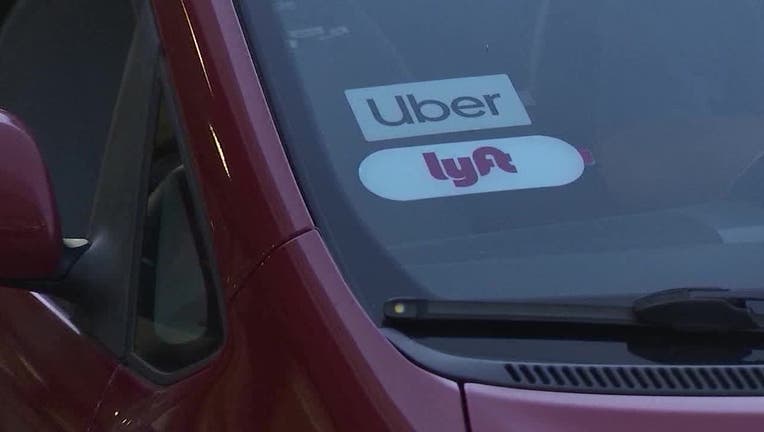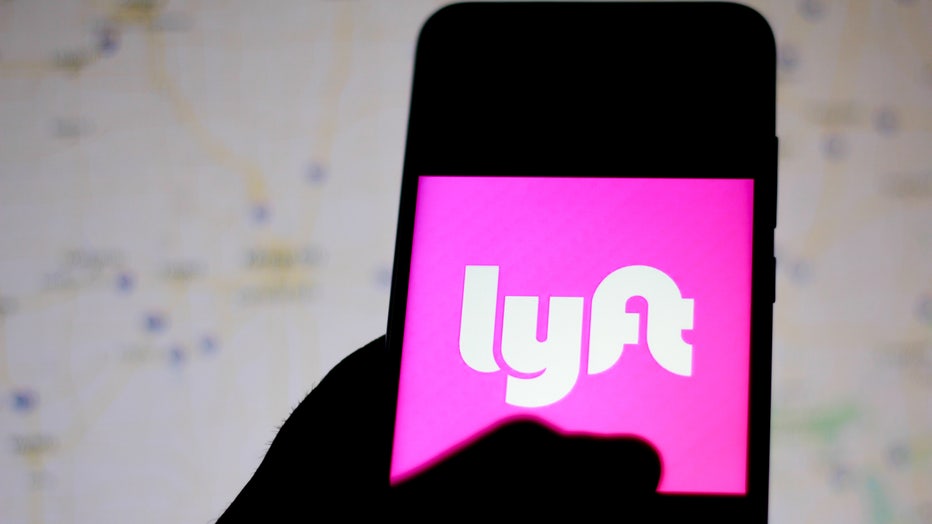Lyft, Uber officials vow to cease operations at Sky Harbor to avoid higher fees

PHOENIX - In the aftermath of a vote by the Phoenix City Council to approve a controversial plan to increase pick-up and drop-off fees for rideshares, officials with Lyft say they will stop all operations at Sky Harbor.
In a statement obtained by FOX 10, Lyft officials say they will cease operations at the airport ahead of the fee's implementation in order to "prevent the unfair penalization of our drivers and riders"
"They should not have to shoulder the burden of the city’s budget shortcomings," read a portion of the statement.

The Lyft logo is seen displayed on a smartphone. (Photo Illustration by Rafael Henrique/SOPA Images/LightRocket via Getty Images)
According to a statement released by Phoenix city officials after the plan was approved, the new fee structure will kick in on February 1, 2020. Rideshare operators will pay a $2.80 pick-up and drop-off fee for non-zero emission vehicles at the PHX Sky Train Station. Zero-emission vehicles will pay a $2.40 pick-up and drop-off fee instead for pick-ups and drop-offs at the Sky Train Station.
For pick-ups and drop-offs at the terminal curb, a $4 fee will be imposed, which will increase to $4.25 in 2021, $4.50 in 2022, $4.75 in 2023, and to $5 in 2024. Starting in 2025, the rate will increase by either the inflation rate of 3%, whichever is greater.
Currently, there is a fee of $2.66 that is only applied towards pick-ups.
City officials say the new fee structure will encourage the use of the Sky Train Station.
Uber officials also said they will pull out of the airport.
"We're pulling out of the airport, I want to be clear about that," said Piper Overstreet. "We'll still be a transportation option around the Valley and state."
According to documents released by the city, Uber officials have said, prior to the vote, that if the city approves the fee structure that was recommended, they will be forced to cease operations at Sky Harbor effective in January.

